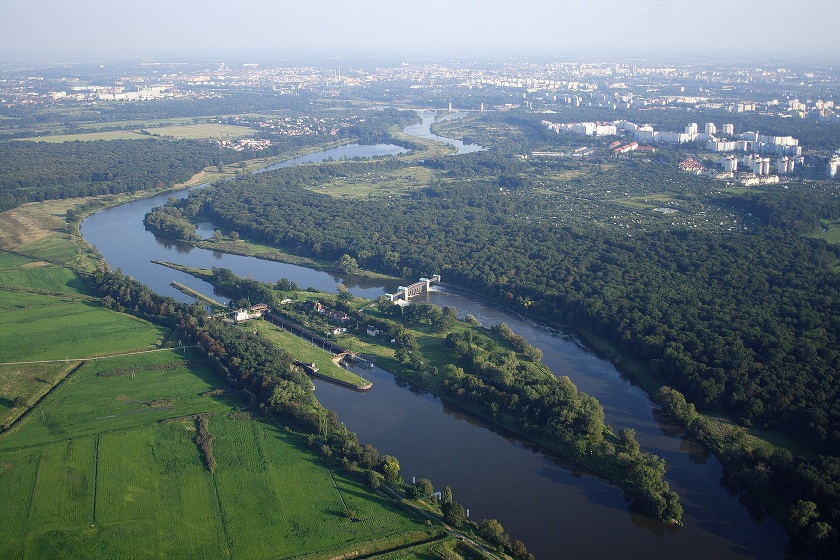According to Urszula Zielińska, Poland’s Deputy Minister of Climate and Environment, river transport is “completely unprofitable” and “kills our rivers.” This statement came as the current left-liberal government announced drastic changes in plans concerning the Oder River, which runs along the border between Poland and Germany.
These changes, set to be implemented through a special parliamentary law, include halting the construction of hydrotechnical structures and instead investing in the restoration of old riverbeds and natural floodplains.
“We will have a systemic plan to repair this ecosystem for the first time. We have also started addressing restoring nature because the Oder is straightened and concreted over,” Zielińska stated. The conversation, hosted by a journalist from Polish Radio Program 1, highlighted the previous conservative government’s intentions to transform the Oder into a commercial waterway. However, Zielińska dismissed these as “complete mirages.”
“River transport is utterly unprofitable today. There are other means of transport being used. It was a complete mirage built on sand, financially unfeasible, leading to a catastrophe — a transport strategy from the 70s,” Zielińska explained.
In response, the journalist noted that many rivers in Western Europe are used for trade, to which Zielińska asked, “Like which ones?”
“The Rhine, for example,” the journalist replied.
“I think that is becoming a thing of the past… I know because I am familiar with the costs of such navigation. It is unprofitable. And it additionally kills our rivers. The biggest problem with the Oder is that there is not enough water for fish to live — not to mention the burdened ships, it’s an aberration,” Zielińska responded.
At the beginning of the year, Adam Rudawski, the new Governor of West Pomerania region, stated that work had already begun on creating the Lower Oder Valley National Park. This was also announced by the new Minister of Climate and Environment, Paulina Hennig-Kloska, aligning with the demands of environmental organizations in Poland, funded in part by the German Ministry of the Environment.
In response to accusations of promoting German interests in Poland, the group “Time for the Oder” proposed an alternative route for inland navigation, mainly through Germany. Commentators have pointed out that the association had previously conducted a propaganda campaign against the construction of retention basins in the Greater Poland region, which were also intended to cool nuclear reactors.
The opening of the Oder for inland navigation and the planned expansion of the port in Świnoujście have long faced opposition from Germany. Concerns from German local authorities, MEPs and environmental organizations revolved around the potential impact on nature and tourism. Despite Polish concessions, Germany long resisted Poland’s plans to build a container terminal in Świnoujście. The German side emphasized that the investment was part of “building competition with the container port in Hamburg,” which they argued would cause “economic damage” to Germany.
The issue of clearing the Oder to allow inland navigation has been a longstanding dispute. In August 2022, the German Ministry of Environment requested a halt to construction works, and in November, Brandenburg filed a lawsuit with the Administrative Court in Warsaw. German state actions are accompanied by a regular propaganda campaign by environmental groups funded with German money.
The Rhine in Germany remains one of the most navigable rivers in Europe, having undergone extensive construction between 1817 and 1876, ultimately shortening its course by over 80 kilometers.






